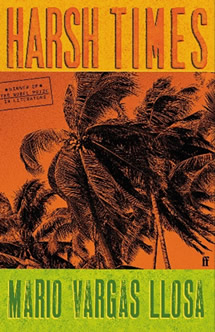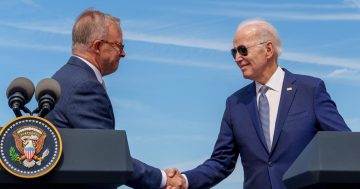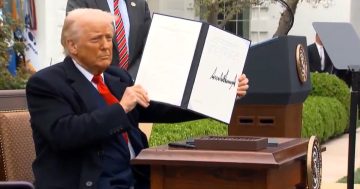Reviewed by Robert Goodman.
By Mario Vargas Llosa, Faber and Faber, $39.99.
 Nobel Prize winning Peruvian author Mario Vargas Llosa has long been interested in South and Central American politics and history. His 1969 novel Conversations in the Cathedral explored the dictatorship in Peru in the 1950s and his 2000 novel The Feast of the Goat is about the assassination of Dominican strongman Rafael Trujillo. Which brings us all the way to 2021 and his latest (and twenty seventh) novel Harsh Times (translated by Adrian Nathan West) which explores the political turmoil in Guatemala in the 1950s and 60s thanks mainly to American interference shows his narrative powers undiminished.
Nobel Prize winning Peruvian author Mario Vargas Llosa has long been interested in South and Central American politics and history. His 1969 novel Conversations in the Cathedral explored the dictatorship in Peru in the 1950s and his 2000 novel The Feast of the Goat is about the assassination of Dominican strongman Rafael Trujillo. Which brings us all the way to 2021 and his latest (and twenty seventh) novel Harsh Times (translated by Adrian Nathan West) which explores the political turmoil in Guatemala in the 1950s and 60s thanks mainly to American interference shows his narrative powers undiminished.
Harsh Times opens by clearly setting out its central thesis. An American company called United Fruit was making a fortune out of Central America through its banana plantations and favourable tax status. The company (and its profits) was threatened by reformist governments who wanted the country to be more democratic, in fact more like America. In order to maintain its position, United Fruit launched a PR campaign that convinced the US Government and public, and much of the Guatemalan public, that these were moves orchestrated by Russia to spread communism in Central America. They did this knowing it to be completely false but in doing so, managed to sew social and political dissent.
The narrative then, in Llosa’s usual style, follows the rise and fall of a number of Guatemalan regimes but not in chronological order. There is a throughline in that leads to the assassination of CIA-sponsored military leader Castillo Armas and its consequences. But in around that Llosa goes back and forward around that event to previous and subsequent regimes. He also ties this narrative in with the action in The Feast of the Goat due to the impact of Trujillo on the events in Guatemala. While it takes a while for the whole picture to cohere, this style also produces a feeling of discombobulation, no more so than in one of Llosa’s signature chapters that intersperses two different conversations at two different times.
Llosa does all of this through a range of memorable, if mostly despicable characters. This includes Castillo Armas himself, Dominican agent and assassin Johnny Abbes Garcia and his patsy Colonel Carlos Enrique Diaz, American ambassador John Emil Peurifoy and Castillo Armas’s mistress Marta Borrero, also known as Miss Guatemala.
Harsh Times may be set in the 1950s and 60s but Llosa clearly has more on his mind than a historical narrative and makes sure that readers understand this. The story of US foreign interference to protect its commercial interests is one that did not stop with Central America. More than that, though, is the fact that in doing so the US undermined the very ideals and norms that it purported to want to spread throughout the world. And while Llosa does away with a bit of subtlety to make his point he still manages to delivery an engaging, informative and insightful novel.
This and over 700 more reviews can be found on Pile by the Bed.





